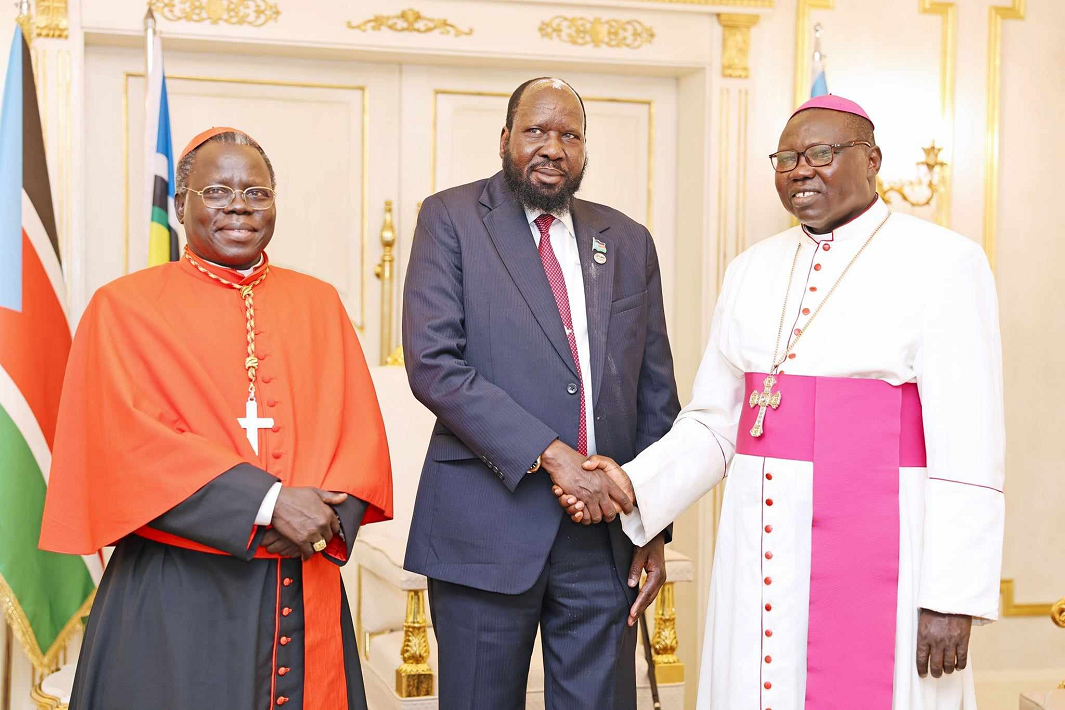By Wesley Omondi
JUBA, OCTOBER 12, 2024 (CISA)— Cardinal Stephen Ameyu, the Archbishop of the Metropolitan Archdiocese of Juba, has expressed optimism about the future of South Sudan, despite the recent postponement of national elections.
The first Cardinal in South Sudan has emphasized that the local Church leadership supports the decision to delay the polls, provided the time is used to create a peaceful environment for free and fair elections.
“If the people and political parties of South Sudan have agreed to the two-year extension, we respect their decision. As a Church, our role is to urge politicians to make sure that proper preparations are made so that, when the time comes, everyone can vote in a peaceful and democratic manner,” Cardinal Ameyu stated.
Last month, President Salva Kiir’s administration announced the delay of the elections originally scheduled for December 2024, citing the need for more time to finalize key tasks such as the national census and the creation of a voter register. The transitional period was formally extended on September 21, following amendments to the Transitional Constitution.
“This extension gives the government time to complete essential tasks like the writing of a permanent Constitution and establishing a comprehensive voter register, both of which are critical for ensuring a smooth election process,” the Cardinal explained.
The 2018 Revitalized Agreement on the Resolution of Conflict in South Sudan (R-ARCSS) ended a brutal five-year civil war, but despite this progress, intercommunal violence and the widespread availability of small arms remain major concerns. The conflict, which raged between 2013 and 2018, claimed over 400,000 lives and led to a major refugee crisis.
“While the 2018 agreement brought an end to the civil war, there are still many armed groups and criminal activities fueled by economic hardship. Politicians must focus on addressing these issues if we are to see lasting peace,” Cardinal Ameyu said, acknowledging the ongoing challenges.
The Cardinal noted that the dire economic situation in South Sudan, where nearly nine million people rely on humanitarian aid, has driven some young people to engage in criminal activity. He stressed that poverty and hunger are exacerbating violence, with some groups resorting to crime purely out of desperation.
“There are many groups that have no political agenda but are simply driven by hunger and poverty. They rob people on the roads because they lack basic necessities,” the Cardinal pointed out.
However, Cardinal Ameyu highlighted the progress made through the Tumaini Peace Initiative, launched in May 2024. This initiative seeks to bring all remaining armed groups into the peace process.
“Thanks to the Tumaini Peace Initiative, we are seeing a growing number of armed groups putting down their weapons and joining the peace process. This gives us hope for a more peaceful future,” the Cardinal said, praising the initiative’s impact.
When asked about the lasting effects of Pope Francis’s peace pilgrimage to South Sudan in February 2023, Cardinal Ameyu reflected on the spiritual and political changes it has brought to the country.
“The Pope’s visit was a turning point for South Sudan. Since then, we have seen a significant reduction in violence and a growing number of people attending Church services and receiving the Sacraments,” he noted, adding that he recently confirmed nearly 3,000 children in Terekeka County.
From a political perspective, the Cardinal observed that the visit inspired a renewed commitment to peace, bolstering the ongoing efforts of initiatives like Tumaini.
“Spiritually and politically, the Pope’s visit brought hope to the people of South Sudan. We continue to pray and work for peace,” Cardinal Ameyu concluded.
